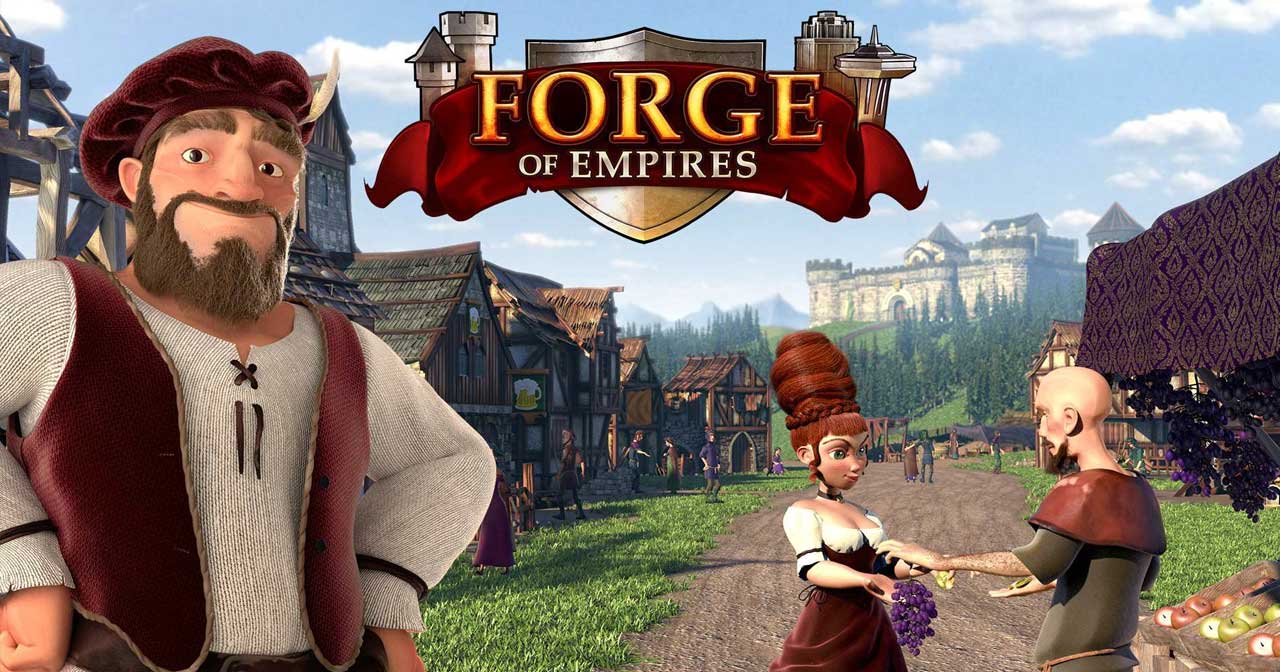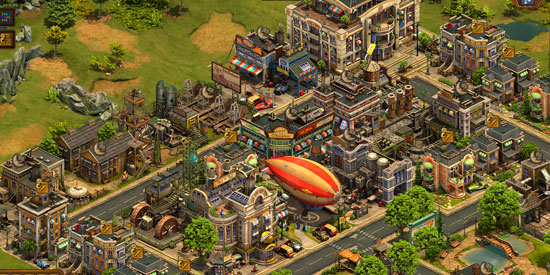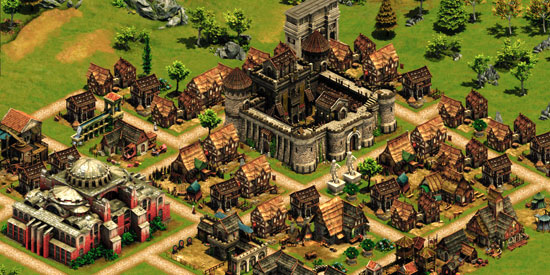
Forge of Empires
| Genre: Strategy |
| Rating: |
Forge of Empires Review: From Caveman to City Planner
Starting out with mud huts and ending with sleek futuristic towers? That’s Forge of Empires in a nutshell. But does the journey between those two points actually feel rewarding? Let’s unpack it.


First Impressions: What’s This Game Even About?
So, you load up Forge of Empires, and bam—you’re in the Stone Age. The UI throws you a few buildings, a resource meter, and a wise-looking advisor who feels like he walked out of a board game. It’s got that classic top-down view city-builders love, and the vibes are a bit like Age of Empires met SimCity and decided to go steady.
The first few minutes are intuitive. You plop down a hunter’s hut, a tent or two, and suddenly people are gathering supplies like it’s the world’s slowest block party. It doesn’t shout for your attention, which honestly is kind of nice. It’s casual but not boring, and that subtle balance sets the tone early on.
Building Your Empire: Slow Burn or Instant Gratification?
Forge of Empires isn’t trying to win any races—and that’s part of its charm. Building your city has a deliberate, almost meditative pace. You place structures on a grid system that quietly demands spatial logic. Factories need space. Cultural buildings want to be near roads. Suddenly you’re an urban planner, and it’s 6000 B.C.
Resources trickle in over time, which can feel a little slow at first. But then, so does sourdough. And much like sourdough, the payoff is strangely satisfying. You start optimizing placements, adjusting roads, rotating buildings for better flow. It becomes this low-key puzzle you solve while sipping coffee.
Honestly, it’s less about racing to finish and more about enjoying the process. Not everyone’s cup of tea, sure, but if you like tinkering, it’s a win.
From Stone Axes to Steampunk: The Era System
This is where Forge of Empires really flexes. Every new era—from Bronze Age to Industrial, then Modern, and even Space Age—comes with its own visual flair and tech perks. Your cities evolve, not just in form but in personality. Thatched roofs become brick walls, become glass towers.
What’s cool is that the game doesn’t just reskin old content. New eras bring fresh challenges: different resources, building needs, even social expectations. It’s like history class, but with less memorization and more strategy.
And yes, some transitions feel smoother than others. The jump from Industrial to Progressive can feel a bit jarring. But even that awkwardness mirrors real-world growth. Things don’t always evolve cleanly.
The Battle System: Tactics or Just Tapping?
Let’s not sugarcoat it—combat can make or break a strategy game. Forge of Empires takes a turn-based approach, where you move units across a hex grid, each with strengths and weaknesses. Archers are squishy but deadly. Heavy units are tanks but slow as molasses.
It’s more chess than checkers, but not by much. The terrain adds depth (forests for cover, rocks for blockage), and smart positioning can swing a fight. That said, once you figure out the winning combos, it risks becoming routine.
Still, battles aren’t just filler. They offer a solid change of pace from city-building, and winning gives that nice dopamine kick. Plus, watching your medieval army clash with some poor spearmen? Chef’s kiss.
Research, Expansion, and That Web of Tech
There’s a whole tech tree in Forge of Empires, and it’s not messing around. Research unlocks buildings, boosts production, and opens new parts of the map. But the coolest bit? It’s not linear. You can go wide or deep, depending on your playstyle.
Want to fast-track military tech? Go for it. Prefer economic buffs and cultural growth? That works too. The tech tree feels like one of those old-school RPG skill maps, and each node you unlock feels earned.
Expansion, though—now there’s the rub. Land is precious, and every new square feels like gentrifying the wilderness. You’ll crave every inch, especially when buildings start taking up more space than your high school gym.
Events, Quests, and Seasonal Shenanigans
Just when you think you’ve got a rhythm going, Forge of Empires throws a carnival at you. Or an archaeology dig. Or a Viking village mini-campaign. Themed events are sprinkled through the calendar, often tied to real-world holidays or seasons.
They’re optional but engaging. Quests push you out of your comfort zone, asking you to build weird stuff or win battles with specific units. And the rewards? Pretty handy.
The thing is, these events also keep the game from going stale. They add color and character, and let’s be honest—who doesn’t want a cherry blossom garden in their medieval town?
Social Systems: Friends, Guilds, and That “Community” Feeling
Forge of Empires gives you a neighbors list, a friends system, and guilds. It sounds like a lot. And yeah, at first it feels like you’re just clicking buttons to aid buildings and polish statues. But over time? It gets deeper.
Guilds offer coordinated events, battles, and that lovely camaraderie you get from shared victory. There’s also a sense of civic pride in being part of a well-oiled group that dominates the Guild Expeditions or battlegrounds.
If you’re the lone wolf type, you can still get plenty out of the game. But if you lean into the social side, it really opens up. Forge of Empires becomes less about your empire, and more about your role in a larger world.
The Long Game: Is It Worth Sticking Around?
Here’s the honest bit: Forge of Empires doesn’t dazzle with short-term flair. It doesn’t throw fireworks in your face every time you click something. But give it time, and it hooks you.
After a month, your city feels lived-in. After three, you start anticipating the next era like you’re waiting for a sequel. There’s a real sense of ownership here, of legacy. The kind of emotional investment that creeps up quietly.
Sure, there are lulls. Some research trees drag. Some eras aren’t as exciting. But those slow patches make the breakthroughs feel even sweeter.
Final Verdict: Should You Forge Ahead?
So, is Forge of Empires worth your time? If you enjoy strategy, planning, and a bit of slow-burn satisfaction, then yeah—absolutely. It’s not a game that begs for your attention. It earns it. Patiently. Steadily.
It’s perfect for people who like watching things grow. Who find beauty in progression, not just results. Who maybe, just maybe, keep a mental map of where they placed that one park near the tavern.
Forge of Empires isn’t loud. But it’s lasting. And sometimes, that’s exactly what you want.